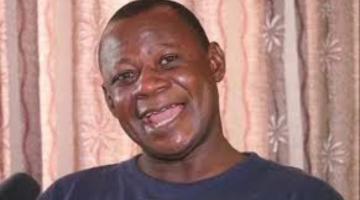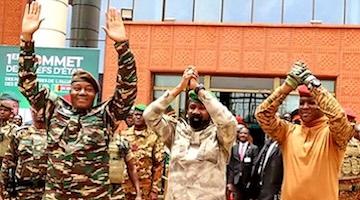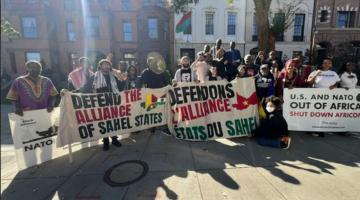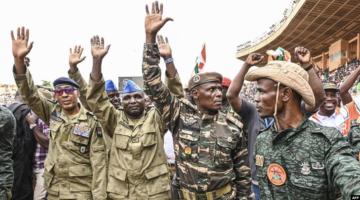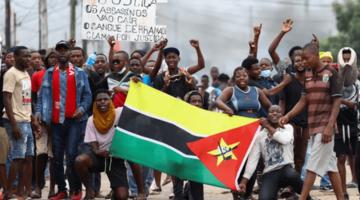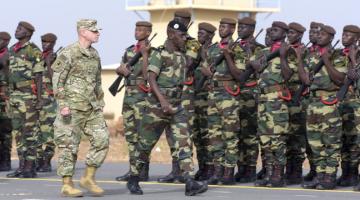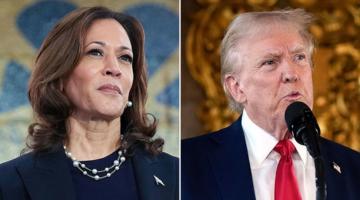“One effective method of attacking the imperialist infrastructure is to drain its pool of enforcers by organizing a total boycott of the U.S. military.”
In 1835, poet Alfred Tennyson penned the oft-quoted verse:
“…in the spring a young man's fancy lightly turns to thoughts of love…”
In 2018, “Gator Shoe Willie,” an 81-year-old barbershop philosopher said:
“…in the spring- in summer, winter and fall too – America thinks about only one thang - how to kick black folks in the ass...”
The latter observation is both more useful and more valid than the former, and is evidenced by recent events. This spring, two young black men at a Philadelphia Starbuckshad no opportunity to allow their fancy to turn lightly to thoughts of love or anything else because of the humiliation they experienced at the hands of a racist store manager and the police. The incident was only one of a series of high profile racial events that included the harassment of a young black woman in a Yale dormitory.
Even the Supreme Court got in on the action. Less than a month after police bullets ripped into the body of Stephon Clark, the highest court in the land felt obliged to also rip into the body of law that provides at least the opportunity to fight police violence directed at black lives – lives that don’t seem to matter very much in America. In the case of Kisela v. Hughes, the Supreme Court ruled that a cop who dropped to the ground and shot a woman who calmly held a kitchen knife cannot be held responsible for his actions because there was no prior case that “‘squarely governs’ the specific facts at issue.” The trick here is that because courts have routinely excused police misconduct, there will always be few, if any, precedent cases “squarely governing” uses of force in a way that is helpful to victims of police violence.
“America’s African population is faced with the challenge of analyzing its circumstances without regard for the political and legal paradigm established by oppressive forces.”
The Supreme Court’s decision in Kiselais but one example of the many ways that capitalism and its white supremacist institutional manifestations tinker with and manipulate the lives of black and other oppressed communities, almost as if these communities are toys – dangerous toys that can explode if not carefully managed. Management means constraining these communities and generally limiting their political and legal options to those which, when exercised yield only illusory reform or abject failure and frustration.
For those occasions when the oppressed find their state-sanctioned avenues for reform absolutely blocked, the laws of the ancestors impose an obligation to search for, or blaze new trails to liberation. Thus, America’s African population, which has learned from recent history that it will be beaten down even when the U.S. head of state has African blood, is faced with the challenge of analyzing its circumstances without regard for the political and legal paradigm established by oppressive forces. It is an analysis that must be ruthlessly driven by the desire to inflict lethal blows on the enemy system and achieve genuine power.
More than fifty years ago, Kwame Nkrumah, Ghana’s first president, took up the challenge of crafting a strategy for development of the African continent’s capacity to strike global capitalism where it hurts and to wield enough power to liberate Africa’s people from oppression and poverty. Many in the African diaspora who were familiar with Nkrumah’s plan to transform the entire African continent into a single, enormous socialist super state immediately recognized the impact such a continent-wide socialist “country” would have on African and other oppressed populations around the globe. However, with the passage of time, many have come to regard the idea as but a wonderful fantasy that can never be implemented because of the overwhelming power of imperialism. Yet, in the quixotic spirit of those who plotted the destruction of slavery in plantation shacks, perhaps it is time to re-visit Nkrumah’s vision.
“Those with power neither listen to, nor care about street protests, petitions and elections.”
Global capitalism is the enemy of African unity and socialism, and it consists of interlocking networks of economic, diplomatic and military forces working in collaboration to feed multi-national corporations with a steady diet of raw materials and valuable natural resources that can be transformed at minimal cost into products that can be sold globally at substantially marked-up prices -- often in the same regions where the resources for manufacture were for all practical purposes stolen. It is now well-established that those with power neither listen to, nor care about street protests, petitions and elections. They are, however, keenly alarmed by any actual threats to the imperialist infrastructure. Therefore, in the struggle to defeat Africa’s enemies and to unite the continent, it is this imperialist infrastructure that must be attacked.
When those protesting environmental crimes in Nigeria destroyed western oil company pipelines and other Africans resisted contamination of waterways in the Horn of Africa with acts of so-called “piracy,” it was enough of a threat to the imperialist infrastructure to trigger the establishment of a new military institution -- U.S. Africa Command (AFRICOM). When Muammar Gadhafi threatened to destabilize western economies by creating a gold-backed Pan-African currency, it was enough of a threat to the imperialist infrastructure to trigger his brutal, grisly assassination. When France sensed that its uranium mining operations in Niger were threatened by so-called “terrorists,” it was enough to place U.S. military personnel in harm’s way, and to even sacrifice the lives of four soldiers.
“Global capitalism is the enemy of African unity and socialism.”
We therefore know where and how imperialism is vulnerable in Africa. The challenge is how to strike those vital targets without running headlong into imperialism’s massive, lethal defenses and counter-attacks. To that end it is important to remember the imperialist infrastructure is not limited to pipelines, mines and refineries. The infrastructure also consists of human resources, like soldiers, who are used as enforcers. Consequently, one effective method of attacking the imperialist infrastructure is to drain its pool of enforcers by organizing a total boycott of the U.S. military. This is a feasible, non-violent, low-risk operation that can be carried out even by those in the African diaspora.
Draft resistance and military boycotts have a long history, but what may be needed now is an organized effort to dissuade military enlistment, not just to send a message, but for the specific purpose of totally frustrating imperialist enforcement operations in underdeveloped regions of the world. Favorable conditions for such a movement already exist because there is broad and deep opposition to the very idea of U.S. military action in Africa. Even the creation of AFRICOM reflects imperialist fears of the global fury that would be triggered by a full-scale invasion of Africa by U.S. troops. For that reason, the Command is by design one that uses local military proxies rather than U.S. troops to carry out U.S. missions in Africa. It is politically and militarily safe only for U.S. military personnel to function as behind the scenes “advisors” and “trainers.”
“When Muammar Gadhafi threatened to destabilize western economies by creating a gold-backed Pan-African currency, it was enough of a threat to the imperialist infrastructure to trigger his brutal, grisly assassination.”
In the U.S., on a domestic level, the boycott of imperialist enforcement jobs has already occurred even though it is an instinctive rather than conscious, organized movement. As a consequence, law enforcement agencies across the U.S. are anywhere from desperate to panic-stricken as they feverishly attempt to recruit people of color into police ranks to blunt criticism of police violence. However, Africans in America have demonstrated consistently that they want no part of an institution that they perceive as a force charged with monitoring, harassing, humiliating, arresting and killing members of their communities. A boycott of the U.S. military may require little more than making the truth about U.S. violence in Africa as real as the police violence would-be recruits observe in their own neighborhoods.
Maximum effectiveness of a boycott will also require the participation of non-black youth. This too is an achievable goal. In the aftermath of the killings of four U.S. soldiers in Niger last fall, many progressive white youth turned their attention to U.S. military involvement in Africa and they were appalled by the unsavory collaboration between the U.S. and France for imperialist purposes. Heightened awareness of how the military is used not for the defense of the country but to ensure the profits of multi-national corporations can lead to a widespread refusal by young people of all communities to allow themselves to be manipulated and exploited as part of the imperialist infrastructure.
“A boycott of the U.S. military may require little more than making the truth about U.S. violence in Africa as real as the police violence would-be recruits observe in their own neighborhoods.”
Frustrating the military is but one method of contributing to the struggle for a liberated, united, socialist Africa. That strategy, along with all others can succeed only by organized and coordinated effort. Commemorations of African Liberation Day will be held all over the world this weekend. The All-African People’s Revolutionary Partymaintains a website that provides information about these events everywhere. These mobilizations are excellent opportunities to make connections with others who are willing to take the struggle to a more effective level.
There are many political strategies that can ease black misery, but Nkrumah’s Pan-African vision is one that contemplates a continent-wide socialist country capable of militarily, economically and diplomatically crushing any efforts to harm African and other oppressed people around the globe. A people unable to even enter a coffee shop without fear of police harassment very much needs that degree of power. It is only when that level of power is achieved that Africans everywhere will be able to credibly say at long last that they are not a people to be trifled with.
Mark P. Fancher is an attorney who writes frequently about the U.S. military presence in Africa. He can be contacted at mfancher(at)comcast.net.

